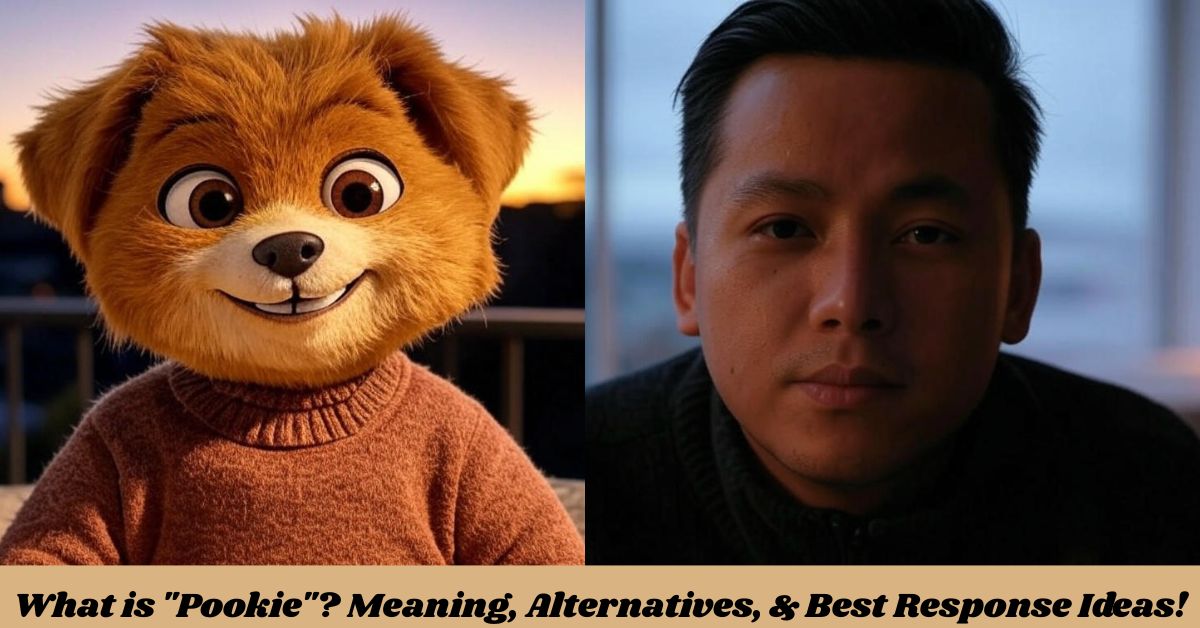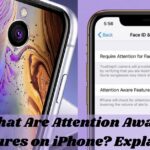“Pookie” is a playful, affectionate pet name that’s gained popularity as a term of endearment, especially in romantic relationships. Originally derived from the children’s book “Pookie” by Ivy Wallace and later popularized in various media, this cute nickname has become a go to expression of fondness alongside alternatives like “babe,” “honey,” and “sweetheart.”
When someone calls you “pookie,” they’re typically expressing affection in a lighthearted way, and responding with equal warmth whether through returning the nickname, offering a playful reply, or simply acknowledging the sentiment with appreciation can maintain the connection that such terms of endearment aim to foster.
Quick Facts on Pookie
- Pookie is a term of endearment similar to honey, sweetie, or darling.
- It’s commonly used between romantic partners but isn’t limited to romantic relationships.
- The nickname has a playful and lighthearted quality to it.
- Pookie can be used by and for people of any gender.
- The term has gained significant popularity through social media platforms like TikTok.
- Using pookie creates a sense of intimacy between the speaker and recipient.
- The nickname has made appearances in various aspects of pop culture.
- Pookie is typically used with a warm, affectionate tone of voice.
- The term creates an inside connection between people who use it.
- It can be adapted into variations like “pookie bear” or “little pookie.”
What Does Pookie Mean?
Pookie is a sweet nickname used to express affection toward someone special. Similar to terms like “honey,” “sweetie,” or “darling,” it conveys fondness and warmth. The term doesn’t have a literal meaning but rather serves as a verbal expression of endearment.
When someone calls you pookie, they’re showing their affection in a playful, lighthearted way. The context and relationship between people determine the exact nuance of how pookie is used, but it always carries positive, warm feelings.
Romantic Affection
- Between romantic partners, pookie serves as a pet name that creates special intimacy.
- Couples use it as part of their private language that strengthens their bond.
- Saying “Good morning, pookie!” adds warmth to everyday interactions.
- The nickname often develops organically in relationships as affection grows.
- Pookie can make ordinary conversations feel more loving and special.
- It’s particularly popular among younger couples who enjoy playful communication.
- Using pookie can be a subtle way to express possession in a positive sense.
- The term often becomes an inside joke between romantic partners.
- Pookie works well in both new relationships and long term partnerships.
- It offers a way to express affection that’s less serious than “love” but more special than using someone’s regular name.
Friendly Teasing
- Friends often use pookie in a lighthearted way to show platonic affection.
- It can be used to tease a friend when they’re being particularly cute or silly.
- Saying “Thanks, pookie!” adds a playful element to ordinary gratitude.
- The nickname can help defuse tension in a friendship through humor.
- Using pookie acknowledges the special bond that exists between close friends.
- Friends might use it when someone needs emotional support without being too serious.
- The term works well in text messages with emojis to convey the teasing tone.
- Pookie can be used in group settings to single out a friend in a positive way.
- It’s common in friendships where playful banter is already established.
- The nickname creates moments of connection without crossing into roman territory.
Familial Warmth
- Parents often call their children pookie to express unconditional love.
- The nickname creates a sense of security and comfort within family relationships.
- Grandparents use it to establish special connections with grandchildren.
- Siblings might use pookie during moments of rare affectionate reconciliation.
- Saying “Sleep tight, pookie” adds warmth to bedtime routines for children.
- The term often accompanies physical affection like hugs in family settings.
- Family members might pair it with adjectives like “little pookie” or “silly pookie.”
- The nickname carries nostalgic feelings of childhood safety and care.
- It’s frequently passed down through generations as a family tradition.
- Using pookie helps reinforce family bonds through verbal affection.
Affectionate for Pets
- Pet owners commonly use pookie when talking to their beloved animals.
- The soft sound of the word makes it perfect for expressing adoration for pets.
- Dogs and cats seem to respond to the gentle tone typically used with this nickname.
- Asking “Who’s my special pookie?” creates bonding moments with furry friends.
- The term is especially popular among cat owners on social media platforms.
- Pet videos tagged with pookie often gain significant attention online.
- The nickname works well with the baby talk people naturally use with animals.
- Using pookie with pets helps establish emotional connections through vocal affection.
- The term fits with the playful energy of interacting with beloved animals.
- It’s often combined with physical affection like petting or scratching.
Pop Culture Influence
- Pookie has appeared in numerous movies, TV shows, and songs over the years.
- Each media appearance has helped popularize the term among new audiences.
- Social media platforms have helped pookie gain traction through viral content.
- The nickname often represents characters who are particularly lovable or endearing.
- Many celebrities have been caught using the term with their significant others.
- Pookie frequently appears in memes across various online platforms.
- The term has become especially popular with Gen Z through TikTok trends.
- Its usage in pop culture has evolved from occasional references to common slang.
- The nickname’s popularity demonstrates how media influences our everyday language.
- Pookie has transcended generational barriers through consistent media presence.
Alternative Nicknames Similar to “Pookie”
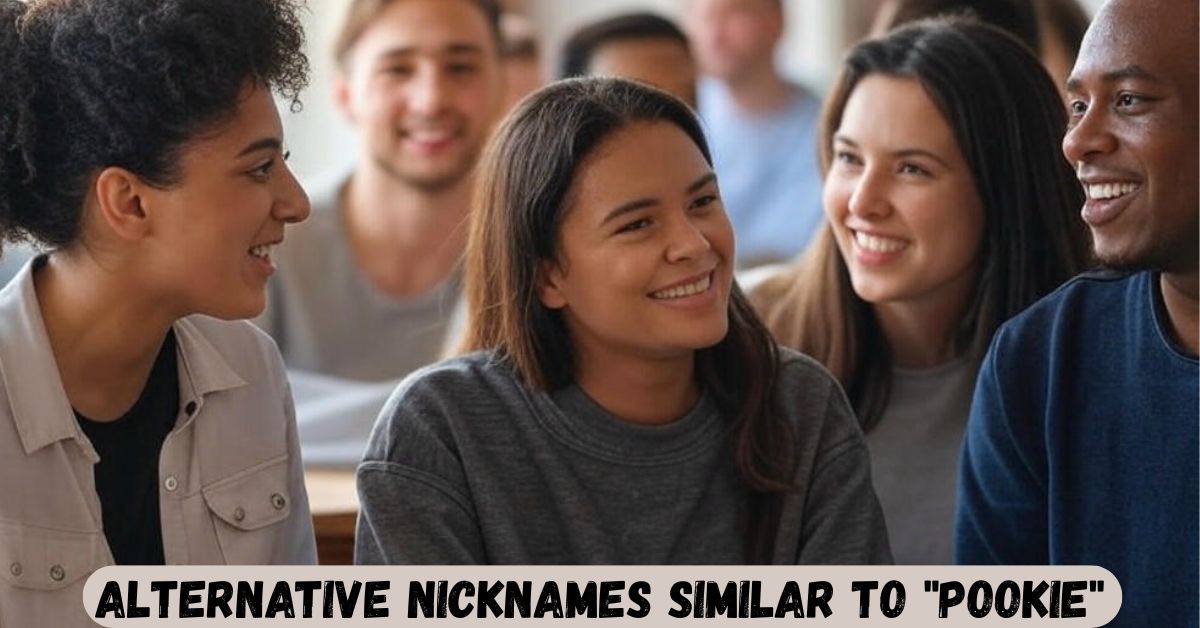
Looking for other sweet terms of endearment? Here are some popular alternatives that carry similar affectionate vibes.
Snookums
- Snookums have a similar playful sound and feeling to pookie.
- It originated in the early 20th century as an exaggerated term of affection.
- The nickname works best in established relationships where both people are comfortable with cutesy terms.
- Using snookums adds a touch of old-fashioned charm to romantic conversations.
- The term often elicits smiles due to its somewhat silly nature.
Sweetie
- Sweetie is one of the most universally accepted terms of endearment.
- It directly references the sweet nature of the person being addressed.
- The nickname works well in all types of relationships from romantic to professional.
- Saying “Thanks, sweetie” adds warmth to expressions of gratitude.
- It’s a safe choice when you’re unsure if a more unique nickname would be welcomed.
Honeybun
- Honeybun combines food imagery with affectionate language.
- It suggests the person is as sweet as honey and as comforting as bread.
- The nickname has a cozy, homey feel that makes it perfect for intimate relationships.
- Using a honey bun creates an immediately warm atmosphere in conversation.
- It’s particularly popular among long term couples who enjoy traditional pet names.
Cutie Pie
- Cutie pie directly acknowledges someone’s adorable qualities.
- It has a youthful energy that makes it popular among younger people.
- The nickname works well when someone does something particularly endearing.
- Saying “Hey cutie pie!” instantly lightens the mood of any conversation.
- It’s often used with a slightly teasing tone that shows affectionate admiration.
Lovebug
- Lovebug has whimsical undertones that make it especially endearing.
- It suggests the person has “infected” you with love in a cute, playful way.
- The nickname has gained popularity through social media and youth culture.
- Using lovebug creates an impression of cheerful affection.
- It works particularly well in new relationships when everything feels exciting and fresh.
READ THIS BLOG: 50 Heartwarming Good Evening Message to My Love
Buttercup
- Buttercup references a delicate yellow flower, suggesting beauty and brightness.
- It has literary connections to romantic stories and fairy tales.
- The nickname creates an old-world charm in modern relationships.
- Saying “What’s wrong, buttercup?” shows concern in an affectionate way.
- It’s popular among those who prefer nature inspired pet names.
Darling
- Darling has a timeless elegance that never goes out of style.
- It originated from the word “dear” with the affectionate suffix “-ling.”
- The nickname works in both casual and formal contexts.
- Using darling adds a touch of sophistication to expressions of affection.
- It’s popular among those who prefer classic terms of endearment.
How to Respond When Called “Pookie”
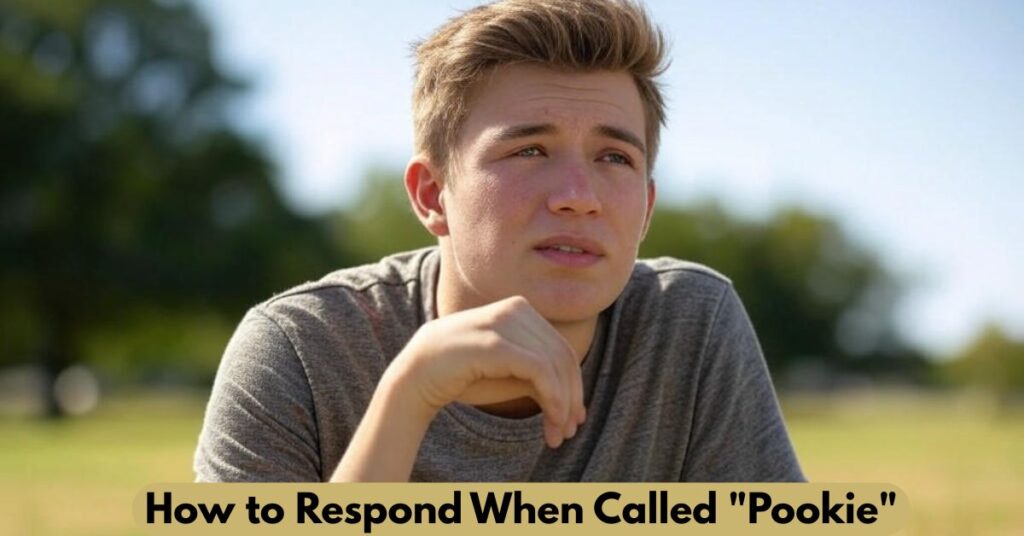
Being called a pookie and not sure how to react? Here are some effective ways to respond that maintain the affectionate connection.
Keep It Playful
- Match their energy by responding with equal playfulness.
- Say “Yes, pookie?” with an exaggerated sweet tone to lean into the fun.
- Add a playful wink or smile to acknowledge the affectionate nickname.
- Create your own variation like “pookie bear” to extend the playfulness.
- Use it as an opportunity to start a light hearted exchange of nicknames.
- Remember that humor strengthens bonds in all types of relationships.
- Don’t overthink it; playfulness should feel natural and spontaneous.
- Respond with “That’s Commander Pookie to you!” for a humorous twist.
- Let your voice rise slightly in pitch to match the cutesy nature of the nickname.
- A playful eye roll with a smile shows you’re in on the joke.
Show Affection
- Respond with genuine appreciation for the term of endearment.
- Say “I love when you call me that” to reinforce the positive connection.
- Use physical affection like a hug or touch alongside your verbal response.
- Return the sentiment with your own term of endearment for them.
- Let your body language show you’re receptive to this level of intimacy.
- Remember that accepting nicknames creates emotional closeness in relationships.
- A simple “You’re my favorite person, you know that?” acknowledges the affection.
- Lean into the moment rather than brushing it off or changing the subject.
- Respond with “That makes me feel special” to validate their expression of affection.
- Use the moment to strengthen your emotional connection.
Play Along with a Little Surprise
- Act playfully shocked when first called pookie.
- Say “Did you just call me pookie? That’s new!” with a smile.
- Pretend to look around asking “Who’s pookie? Is there someone else here?”
- Use light sarcasm like “Wow, we’ve reached the pet name stage already?”
- This approach works well if you’re comfortable with humor in relationships.
- It acknowledges the nickname while maintaining a lighthearted atmosphere.
- Your surprise can create a memorable moment in your relationship.
- Respond with “I’ve been upgraded to pookie status! What an honor!”
- This reaction works especially well the first time someone uses the nickname.
- A surprised but pleased reaction can encourage continued use of the endearment.
Embrace It and Own It
- Confidently accept the nickname as part of your identity with them.
- Say “Yes, I am your pookie. What can I do for you?” with assurance.
- Use it as an opportunity to establish comfort with terms of endearment.
- Make it exclusive between you two by saying “Only you get to call me that.”
- Remember that embracing nicknames can strengthen relationship bonds.
- Your acceptance shows emotional availability and openness.
- A simple “That’s me!” with a smile shows you’re comfortable with the affection.
- Respond with “I’ve been waiting for my pookie promotion!” to show enthusiasm.
- Use it as a chance to develop your own relationship shorthand and inside jokes.
- Owning the nickname helps solidify your special connection.
Respond With a Compliment
- Turn their term of endearment into an opportunity for meaningful connection.
- Say “You always know how to make me feel special, don’t you?”
- Express how the nickname makes you feel valued and appreciated.
- Use it as a moment to share what you admire about them in return.
- Remember that reciprocating affection builds stronger relationships.
- A simple “You’re so sweet to me” acknowledges their affectionate gesture.
- This approach works particularly well in romantic relationships.
- Respond with “And that’s why you’re my favorite person” to return the sentiment.
- Use the opportunity to make eye contact and deepen your connection.
- Compliments in response to nicknames create positive reinforcement cycles.
When to Set Boundaries
- If the nickname makes you uncomfortable, it’s okay to express that politely.
- Say “I appreciate the affection, but I prefer to be called by my name” with a gentle tone.
- Redirect to nicknames you’re more comfortable with if applicable.
- Remember that healthy relationships respect personal boundaries.
- There’s no obligation to accept a nickname that doesn’t feel right to you.
- Setting boundaries creates more authentic connections in the long run.
- A simple “I’m not really a nickname person” communicates your preference directly.
- Express appreciation for the sentiment while clarifying your preference.
- Offer alternatives that you’re more comfortable with if appropriate.
- Be kind but firm when establishing boundaries around personal names.
Famous Uses of “Pookie” in Pop Culture
The term pookie has made numerous appearances throughout entertainment and media. These references have helped shape how we understand and use the nickname today.
“The Pookie Syndrome” in The Cosby Show
- The character Olivia was affectionately called pookie in several episodes.
- This portrayal helped normalize the use of pookie as a family nickname.
- The show demonstrated how nicknames create special bonds between family members.
- Millions of viewers were exposed to the term through this popular sitcom.
- The positive association helped make pookie a household term of endearment.
- This usage specifically highlighted the familial context of the nickname.
- Many families adopted the term after hearing it used so warmly on television.
- The character’s response to the nickname showed how it created family connection.
- This media portrayal emphasized the innocent and loving nature of the term.
- The show helped establish pookie as a mainstream term of affection.
“Pookie” in New Jack City
- Chris Rock played a character nicknamed Pookie in this 1991 film.
- This usage gave the term a different cultural context than previous appearances.
- The character became memorable largely because of the distinctive nickname.
- This film demonstrated how nicknames can become a character’s defining trait.
- The serious nature of the film contrasted with the childlike quality of the nickname.
- Chris Rock’s portrayal created a lasting impact on popular culture.
- This usage helped expand pookie beyond just being a cute term of endearment.
- The film showed how nicknames can create character depth and audience connection.
- Many viewers remember the character primarily by the nickname rather than his actual name.
- This portrayal added complexity to the cultural understanding of the term.
“Pookie” in Music
- Aya Nakamura released a popular song titled “Pookie” that gained international attention.
- The term appears in numerous hip hop and R&B lyrics as a term of affection.
- Artists use pookie to create a sense of intimacy in their music.
- The musical usage helps spread the term to younger generations.
- Songs featuring the nickname often reach millions of listeners worldwide.
- Music videos visualize how the term is used in romantic contexts.
- Streaming platforms have helped these songs reach global audiences.
- The rhythm and sound of “pookie” make it work well in musical contexts.
- Artists have helped evolve the meaning and usage of the term through music.
- Song lyrics have contributed to making pookie part of romantic vocabulary.
“Pookie” in Internet Memes
- Pookie has become a common feature in viral content across social platforms.
- Memes often use the term to create an exaggerated sense of affection.
- TikTok trends frequently incorporate pookie in various relationship challenges.
- The nickname works well in memes because it’s both recognizable and amusing.
- Internet usage has helped pookie transcend generational boundaries.
- Memes have created new contextual meanings for the term.
- Social media has accelerated the nickname’s popularity among Gen Z users.
- Pookie often appears in “relationship goals” content online.
- The term has been featured in countless viral tweets and Instagram captions.
- Internet culture has expanded the usage and recognition of the nickname.
“Pookie” in Cartoons and Children’s Shows
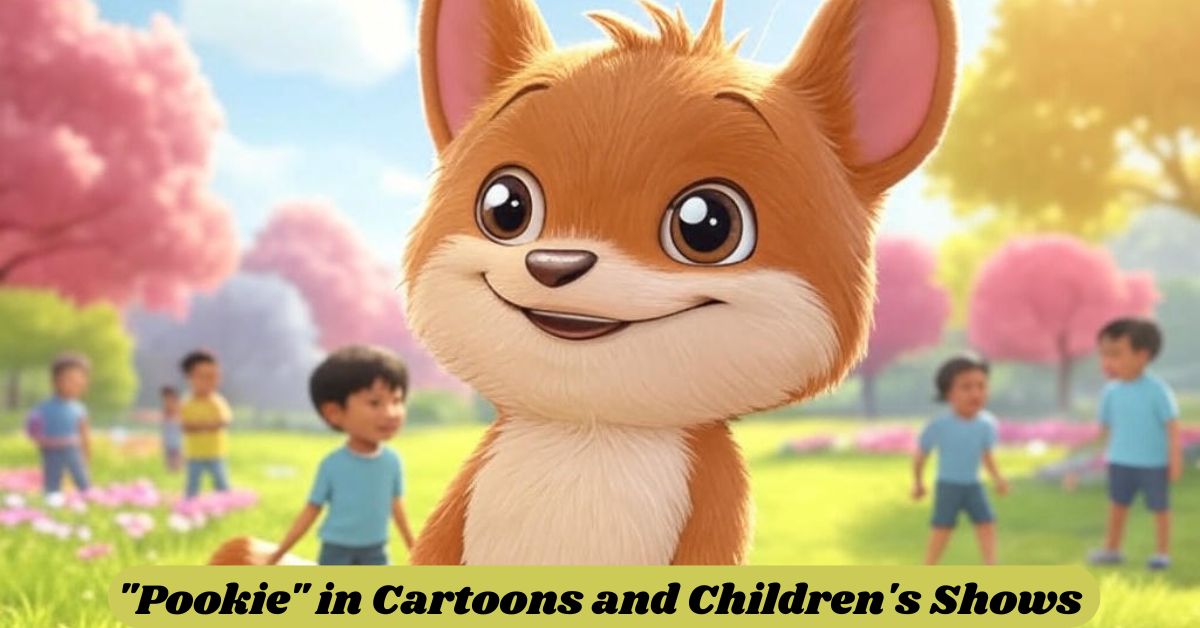
- Animated characters are often given the nickname pookie to emphasize their cute qualities.
- Children’s shows use the term to demonstrate healthy affection between characters.
- The nickname appears in shows aimed at teaching children about emotional expression.
- Cartoon usage reinforces the innocent and playful nature of the term.
- Young viewers learn that nicknames can be ways to show special connections.
- These shows often pair pookie with visual demonstrations of affection.
- The animated context highlights the whimsical nature of the nickname.
- Children learn about terms of endearment through these media representations.
- The nickname helps animated characters express care and affection in relatable ways.
- Cartoon usage further cements pookie as a universally understood term of affection.
READ THIS BLOG: 50+ Good Roasts That Hurt (& Make You Laugh)
Final Take
Pookie is much more than just a silly nickname, it’s a powerful expression of affection that creates unique bonds between people. Whether used between romantic partners, friends, family members, or even with pets, this endearing term brings warmth and playfulness to relationships.
The versatility of pookie makes it appropriate for many different contexts, though always with the same underlying message of affection and closeness. Its presence in pop culture has helped cement its place in our collective vocabulary, making it instantly recognizable across generations.
Next time someone calls you pookie, you’ll understand the sentiment behind it and have several great ways to respond. And if you’re looking to express affection to someone special in your life, pookie might just be the perfect term of endearment to show how much you care!
Frequently Asked Questions
What does it mean when someone calls you pookie?
When someone calls you pookie, they’re expressing affection and fondness toward you. It’s a term of endearment that indicates you hold a special place in their heart, whether romantically, as a friend, or as family.
Is pookie only used in romantic relationships?
No, pookie is a versatile nickname used in many types of relationships. While it’s common between romantic partners, it’s also used between friends, family members, and even for beloved pets.
Where did the term pookie originate?
The exact origin is unclear, but pookie is believed to have evolved from earlier terms of endearment. It gained significant popularity through pop culture references in television, movies, and music over the past few decades.
Is it appropriate to call anyone a pookie?
The appropriateness depends on your relationship with the person. Pookie works best with people you already share a close, affectionate bond with. Consider the context and your existing dynamic before using this nickname.
How popular is pookie on social media?
Pookie has gained tremendous popularity on platforms like TikTok, Instagram, and Twitter. The term regularly appears in viral content, relationship posts, and pet videos, making it a significant part of online slang and meme culture.
Conclusions
“Pookie” has established itself as a widely recognized term of endearment that conveys affection in a playful, intimate manner. Its charm lies in its casual sweetness that can strengthen emotional bonds between partners, friends, or family members. While some may find it overly cute or clich, its enduring popularity speaks to our human need for personalized expressions of affection.
When someone calls you “pookie,” they’re likely creating a special language between you both, and responding authentically whether by embracing the nickname, offering your own term of endearment, or gently establishing boundaries if it doesn’t feel right is the best approach. Ultimately, the value of pet names like “pookie” isn’t in the word itself, but in the genuine affection and connection they represent between people who care for each other.

Jerry is a seasoned SEO expert with a passion for content writing, keyword research, and web development. He combines technical expertise with creative strategies to deliver exceptional digital solutions.
